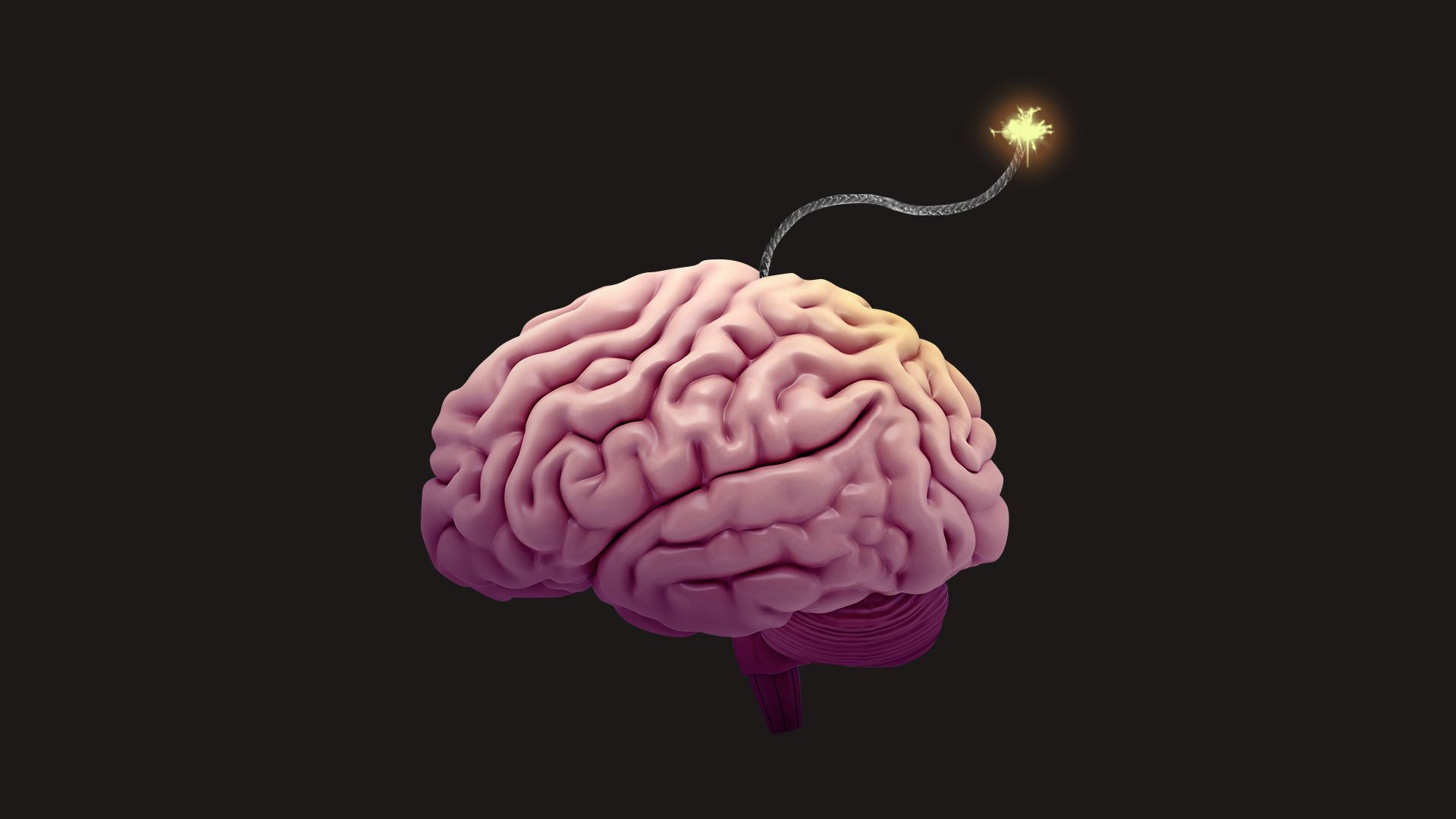Why our brains struggle to understand risk
Add Axios as your preferred source to
see more of our stories on Google.

Illustration: Aïda Amer/Axios
The decision to pause the use of Johnson & Johnson's COVID-19 vaccine — and the furor that now surrounds it — underscores the confounding psychology behind risk assessment.
Why it matters: From vaccines to emerging technologies, the future will force us to make difficult, risk-based choices that our Stone Age brains are ill-equipped to handle, especially in an environment where social trust has evaporated.
Driving the news: The FDA's move on Tuesday to halt J&J vaccinations came after reports that six women out of roughly 7 million people who had received that shot experienced potentially dangerous blood clots, with one dying. Scientists are reviewing the data to "assess their potential significance."
- On Wednesday, the CDC's vaccine advisers agreed to a pause of at least a week and a half as they review safety data.
- Based on those numbers alone, the decision may look puzzling.
- As my Axios colleague Sam Baker reports, common medications like birth control as well as the coronavirus itself carry a much higher risk of blood clots than the extremely rare side effects seen so far with J&J's shot, while any delay in vaccine rollout raises the risk of continuing the deadly pandemic.
Yes, but: We don't evaluate vaccines based on a simplified cost-benefit analysis — not that our brains are great at making those calculations anyway.
- Virtually unique among medical interventions, vaccines are given to healthy people to prevent disease, which demands a higher level of safety.
- While six blood clots is a minuscule amount, further investigation may well discover more unreported cases of side effects. On Wednesday, Denmark announced it would not restart the use of the AstraZeneca vaccine — which employs a similar adenovirus vector as J&J — after identifying concerning side effects in 1 out of 40,000 shots.
- Because a vaccine for a disease like COVID-19 ultimately needs to be taken by the bulk of the population to effectively stop the pandemic, keeping public trust in their safety and quality is paramount — which is precisely what the FDA's pause is meant to inspire.
The catch: Since we naturally tend to evaluate risk on an emotional rather than a mathematical level, there's no guarantee the move will accomplish its aim.
- Psychological research has shown that under conditions of uncertainty — which definitely includes the pandemic — most people make judgments not off hard numbers, but using mental shortcuts that can be heavily influenced by emotion.
- Seeing the government stop distribution to investigate apparently very low levels of risk theoretically should help shore up vaccine confidence in the U.S., where 30% of people surveyed in a recent poll said they definitely aren't going to take or will wait and see about getting a COVID-19 vaccine.
- But in Europe — with the exception of the U.K. — public confidence in the AstraZeneca vaccine plunged after countries temporarily halted its distribution, even though the EU medical regulator said it was safe and effective.
Of note: A pause wouldn't have much effect on Americans' vaccine confidence if they had full trust in their leaders — but a survey earlier this year indicated that trust in every institution has fallen to historic lows.
The big picture: The future will present even more complex questions about risk analysis that we may be ill-equipped to process.
- The debate over whether to experiment with the unknown effects of solar geoengineering to combat climate change qualifies, as do questions about whether to close down carbon-free nuclear plants like New York's Indian Point over the small chance of an accident.
- The annual threat assessment from the U.S. intelligence community released on Tuesday highlights the rising threat from emerging technologies like biotech and AI, which require balancing the benefits these tools can bring with the risks that they could be misused.
What's next: The real challenge will come as regulatory agencies including the FDA try to decide what level of risk is ultimately acceptable as we work to vaccinate the entire world.
- On Wednesday, the EU Commission reportedly decided not to renew its vaccine contracts with both J&J and AstraZeneca, likely slowing the pace of vaccination.
The bottom line: The FDA paused J&J out of an "abundance of caution" — and it was likely correct to do so.
- But in a pandemic — and in a risky future more generally — it won't always be easy to identify which decision is ultimately more cautious.
